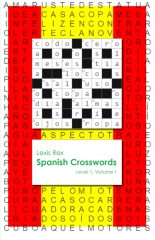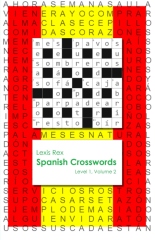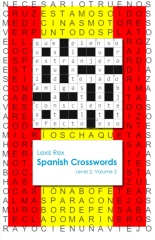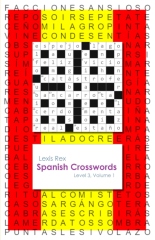The Spanish word for to hit is
acertar
Spanish Definition
| hit | |
| 1. Golpear, pegar, chocar. | |
| 2. Afectar, hacer daño, perjudicar. | |
| 3. Dar en, alcanzar. | |
| 4. n. Golpe, tiro. | |
| 5. n. Acierto. | |
| 6. n. Éxito. |
Translations for hit and their definitions
| acertar | ||
| 1. v. to hit, to hit upon | ||
| La bala acertó al policía en la pierna. - The bullet got the policeman in the leg. | ||
| 2. v. to be right | ||
| ¿Cuántas preguntas acertaste? –Ninguna. - How many questions did you get right? –Zilch. | ||
| El pronóstico del tiempo acertó hoy. - Today's weather forecast proved right. | ||
| golpear | ||
| 1. v. to hit, to knock, to tap | ||
| pegar |  | ||
| 1. v. to stick | |||
| No pega a la pared - It doesn't stick to the wall. | |||
| 2. v. to match; to fit; to go with | |||
| La mesa no pega con la silla. - The table doesn't go with the chair. | |||
| 3. v. to be strong (of food and drink) | |||
| Hoy pega mucho el sol. - The sun is hot/strong/blazing down today. | |||
| 4. v. (computing, transitive) to paste | |||
| copia y pega - copy and paste | |||
| 5. v. to glue | |||
| Pégalo con el pegamento - Glue it with the glue | |||
| 6. v. to hit; strike | |||
| pega el balón - hit the ball | |||
| 7. v. to give; dish out (a strike) | |||
| ¡Te voy a pegar un manotazo! - I'm gonna give you a slap! | |||
| 8. v. to infect; pass on; infect (a disease) | |||
| Creo que me pegó la sífilis. - I think he gave me syphilis. | |||
| 9. v. to do; take; have (a kind of catch-all verb for various actions) | |||
| Voy a pegarme una ducha. - I'm going to take a shower. | |||
| Aquí falta pegar una buena limpieza. - This place needs (to have) a good clean-up. | |||
| Pegamos una buena comida. - We had an awesome lunch | |||
| Acaba de pegar otro grito. - She's just let out another shout | |||
| ¡No te pegues otra borrachera! - Don't get smashed again! | |||
| pegar un tiro; pegarse un tiro - to shoot; to shoot oneself | |||
| 10. v. (colloquial) to flirt, hit on | |||
| 11. v. (intransitive) to stick, to become attached, to adhere | |||
| 12. v. (intransitive) to take root | |||
| dar | ||
| 1. v. to give, to give out | ||
| 2. v. to hand over | ||
| 3. v. to hit | ||
| Me han dado en la cabeza. - They hit me on my head. | ||
| 4. v. to emit | ||
| 5. v. to produce | ||
| 6. v. to perform | ||
| 7. v. to consider | ||
| Doy eso por menos que yo. - I consider that beneath me. | ||
| Yo lo doy por muerto. - I consider him dead. | ||
| 8. v. (indtr, con) to encounter; to find with effort | ||
| Dimos con María. - We encountered Maria. | ||
| Dimos con el edificio después de tres horas. - We finally found the building after three hours. | ||
| 9. v. to hit upon | ||
| 10. v. (indtr, a, .colloquial, intr=1) to press, activate | ||
| darle al botón - to press the button | ||
| 11. v. to ruin; mess up | ||
| Me dio la noche - It ruined the night for me | ||
| 12. v. to occur | ||
| 13. v. to grow naturally | ||
| El maíz se da en esta tierra. - Corn grows on this land. | ||
| 14. v. to hit | ||
| El coche se dio con/contra un árbol. - The car hit a tree. | ||
| 15. v. to assume | ||
| darse por vencido - to assume to be defeated | ||
| darse por muerto - to assume to be dead | ||
| 16. v. to pretend to be, to present oneself as though one were | ||
| Se las da de enfermero pero nunca ha estudiado. - He pretends to be a nurse, but he's never studied. | ||
| 17. v. to surrender | ||
| ¿Te das? — Me doy. - Do you surrender? — I surrender. | ||
| 18. v. to fuck (used with third person direct objects only) | ||
| Vos solo te la das. - You just fuck her. | ||
| Me quiero dar a José. - I want to fuck José. | ||
| 19. v. to find someone sexually attractive (mostly to have a sexual encounter with) | ||
| Le re doy. | ||
| 20. v. to announce, predict | ||
| Dan lluvia. - They announced rain. | ||
| chocar | ||
| 1. v. to crash | ||
| 2. v. to bump into, to collide with (+ con) | ||
| 3. v. to shock, scandalize | ||
| 4. v. to crash into, to hit, to slam into, to collide with (+ contra) | ||
| 5. v. to annoy, to bother, to upset | ||
Dictionary entries from Wiktionary






